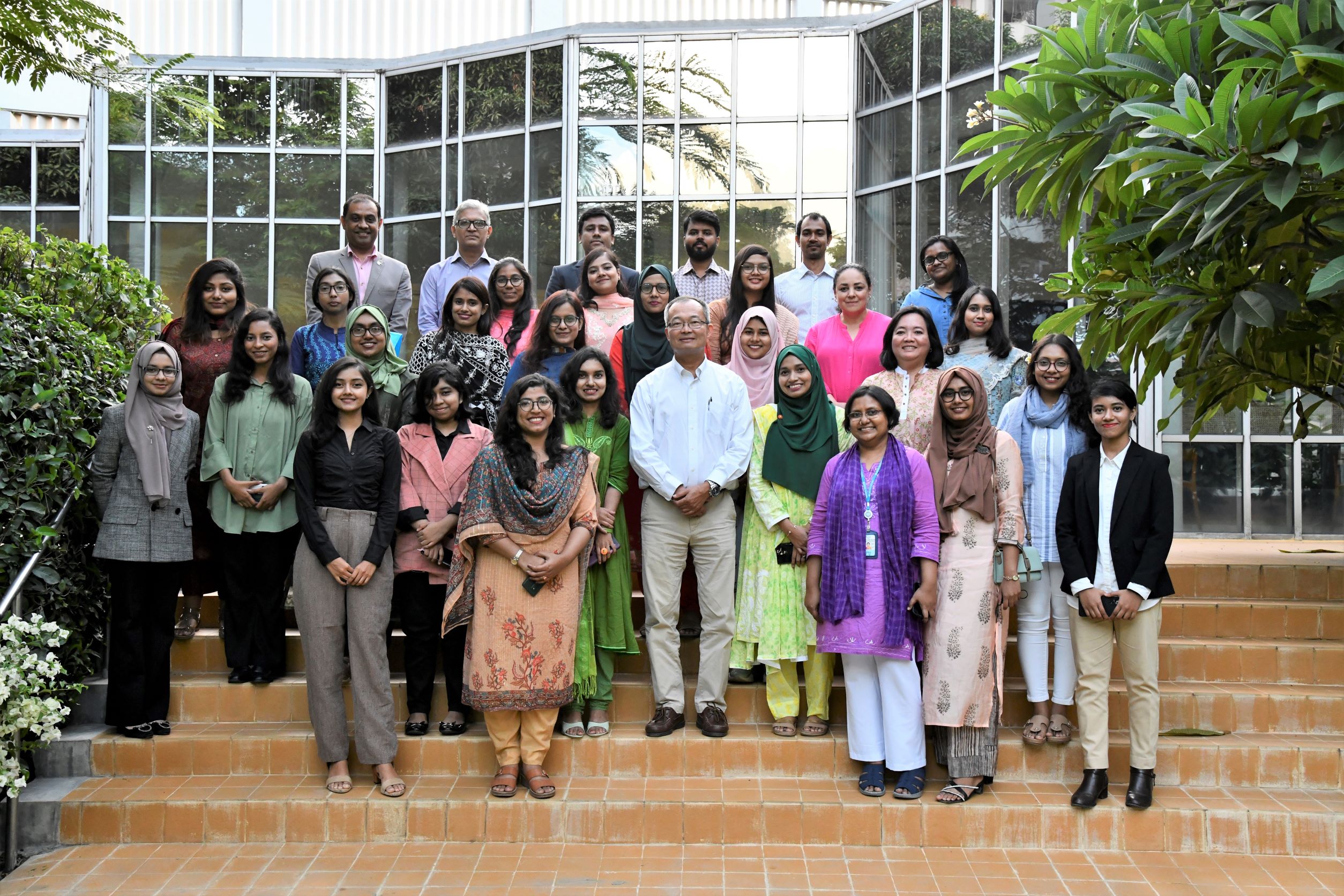Meet Subah Fairooz Maisha, an electrical engineering graduate who works at a power plant. She is one of the many ambitious young women we met in Bangladesh who wants to thrive in the energy sector, while contributing to the country’s economic growth and net-zero carbon emissions journey. Bangladesh needs more young professionals like Subah to lead the energy sector of the future.
The unique 3-month hybrid Shoktikonna or ‘Power Women’ leadership program, provided her with the opportunity to meet fellow female energy sector professionals and mentors – and much more.
Bangladesh is making a shift towards renewable and smart energy technologies . The government plans to raise $127 billion in investments for the power sector over the next 20 years. This is a unique time for Bangladeshi women working in the energy sector to inspire the next generation. Women make up just 6% of total technical staff and 10% of total staff. Among the factors holding women back is a lack of role models and mentors, limited networking opportunities and limited exposure to professional development.
A Leadership training program to “Power Women”
Shoktikonna aims to inspire young women in Bangladesh to lead the country’s renewable energy transition. It is the first such program in the country.
The first edition of Shoktikonna started with 45 women earlier this year – engineering students and professionals who were selected through a competitive application process. The training was free of cost for the participants and was conceptualized and implemented by a local organization, Devtale Partners, and WePOWER, an initiative by the World Bank. The program leveraged the World Bank’s existing knowledge resources and extensive network of experts, to deliver a robust curriculum through self-guided online modules and live online sessions.
The unique hybrid learning experience was tailored to fill in the opportunity gaps for young women students and professionals in the evolving energy sector. Participants learned both soft skills and relevant technical skills – on topics such as everyday leadership, unconscious bias and gender, and decentralized renewable energy applications. The courses were delivered by expert tutors, including from the World Bank, the University of Illinois’ Gies College of Business, University of Utah’s Intermountain Industrial Assessment Center, MIT, IRENA and ADB.
Shoktikonna also provided opportunities to network with women role models and industry experts -- a first for many of them – as well as visits with renewable energy project teams from GIZ, the EU, USAID, and Solshare. A Solve-a-Thon Bootcamp and Competition was held for participants to solve real-world challenges. The winners were awarded prizes at the Shoktikonna graduation and awards ceremony
Puja Saha, who won the first prize at the Solve-a-thon with her 'Green E-rickshaw Battery Charging and Swapping Station' proposal, said: ”Shoktikonna was truly an experience of leadership. Through different courses, sessions, and inspirational stories, Shoktikonna helped us broaden our view. Now we can say with confidence that we can tackle any problem that comes our way."
Puja’s experience reflects that of the other Shoktikonna participants. But it was also a rewarding experience for the tutors – experts who volunteered their time already for future cohorts. The mix of technical and soft skills training has helped the younger participants gain confidence to succeed in a challenging sector and to rely on and learn from each other. The exposure to renewable energy concepts was also instrumental in convincing some students to enter the energy sector job market.
Building a powerful peer group
Community-building was a crucial objective of the program: Towards this, the private Facebook group for the participants provided a safe and therapeutic space for the women to share their daily experiences and support each other through fun events, like a meme competition. Indeed, the key outcome of Shoktikonna has been its success in forming a close community. The participants frequently arranged informal get-togethers to socialize in person.
Shoktikonna graduates also reap the benefits of a valuable, high-profile professional network. The tutors continue to mentor the participants with their careers. Due to positive word-of-mouth, there has been a flood of requests to start the second cohort. Recently, graduates also advised other development organizations who want to replicate their own youth development programs. Subah Fairooz Maisha said: “They mainly wanted to learn more about our Shoktikonna Leadership Cohort, which is definitely something for us to be proud of. It felt really good to share ideas with them. How amazing would it be if we can truly leverage the network we have created, for both our personal development and the development of this community?”
The World Bank is committed to replicating and scaling up this kind of leadership program in other South Asian countries. In the years to come, we hope many more powerful women around South Asia will come forward and help bring about the transformation the region’s energy sector needs.
Please see www.shoktikonna.org and www.wepowernetwork.org for more information.








Join the Conversation